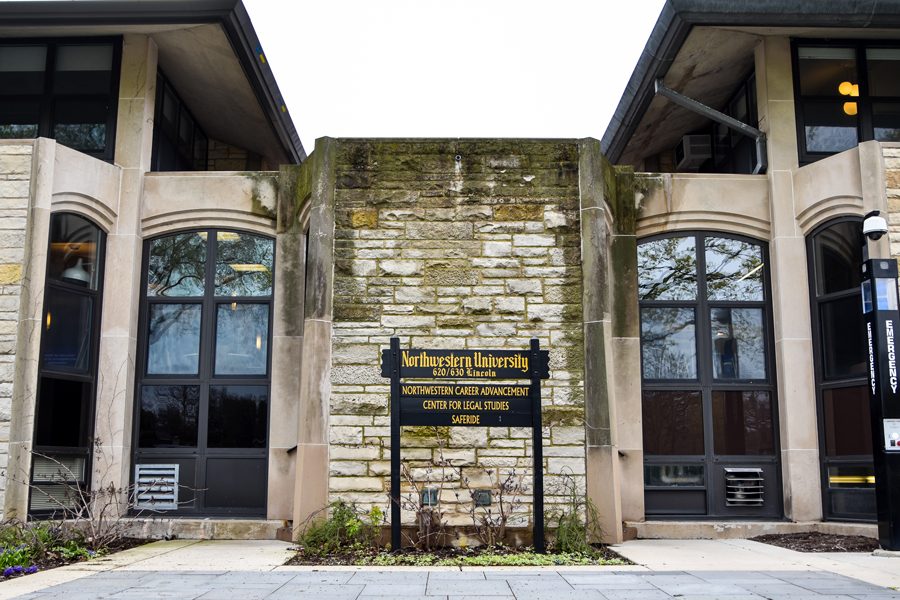Low-income students reflect on unpaid internships and campus resources
Daily file photo by Brian Meng
The exterior of Northwestern Career Advancement. Low-income students said they felt supported through the summer through NCA’s Summer Internship Grant Program.
September 26, 2019
Weinberg sophomore Amor Delarosa spent the summer at her old middle school helping tutor students enrolled in summer camp. But Delarosa, a low-income student, said she would not have been able to afford doing so had it not been for a summer grant she received through the University.
“It was a very good opportunity because I know that my other friends couldn’t do any internships because they were unpaid so they had to work more feasible jobs even if it wasn’t what they wanted to do,” Delarosa said.
Delarosa’s one of many students who found Northwestern’s Summer Internship Grant Program a valuable but under-used resource when it came to choosing their summer plans.
SIGP grants are administered by Northwestern Career Advancement and subsidize qualifying students with $3000 to help them afford to take on unpaid summer internships. The grant also includes summer research positions and other opportunities to develop professional skills.
Recently, unpaid internships have come under fire for putting low-income students who cannot afford to work without pay at an unfair disadvantage and for being exploitative of college students hungry for job opportunities.
Weinberg sophomore Brenden Jones had a similar experience as Delarosa with SIGP. He said he was glad SIGP allowed him to apply before securing an internship, so he was guaranteed the funding if he needed it.
Jones, who also identifies as a low-income student, said his internship at an engineering company allowed him to explore future career options, which led to him realize that he was interested in project management — something that wouldn’t have happened otherwise.
“I probably would’ve gotten a job at the mall or somewhere local to save up some money,” Jones said.
But both Jones and Delarosa said the University doesn’t do enough to publicize resources for low-income and first-generation students.
Delarosa said she has used NCA services like the Career Development Fund, a one-time service that gives students up to $300 to purchase formal interview attire that they may not have been able to afford and covers travel costs for job, internship and graduate/professional school interviews.
“A lot of people don’t know about the resources that we have,” Delarosa said. “I would call (my friends) like, ‘Oh, you know, you can get $300 for this,’ or ‘You can go and get this.’”
Jones was a part of the Compass Peer Mentorship Program at Northwestern last year, which matches first-year students with upperclassmen mentors to help them develop lasting relationships and make the college transition easier, but he was only able to join in the winter because he hadn’t heard about it beforehand.
Eleni Vartelas, assistant director of employer strategy at NCA, agreed that it is difficult for students to stay informed about all the services Northwestern has to offer. She said students should watch out for NCA newsletters with announcements and updates on their social media accounts.
She attributed the lack of clear information about NCA and Student Enrichment Services, which helps support lower-income, first-generation and undocumented students on campus, services to the size and amount of programs at the University. The office encourages students to explore resources offered by NCA and SES, like Handshake, an online platform that gives students access to job and internship opportunities.
“Northwestern is definitely decentralized,” she said. “All of our staff know our services and what we provide for students, especially if they’re looking for funds or something like that. Everyone’s well educated on that. But I think it is hard to navigate overall.”
Email: [email protected]
Twitter: @neyachalam


